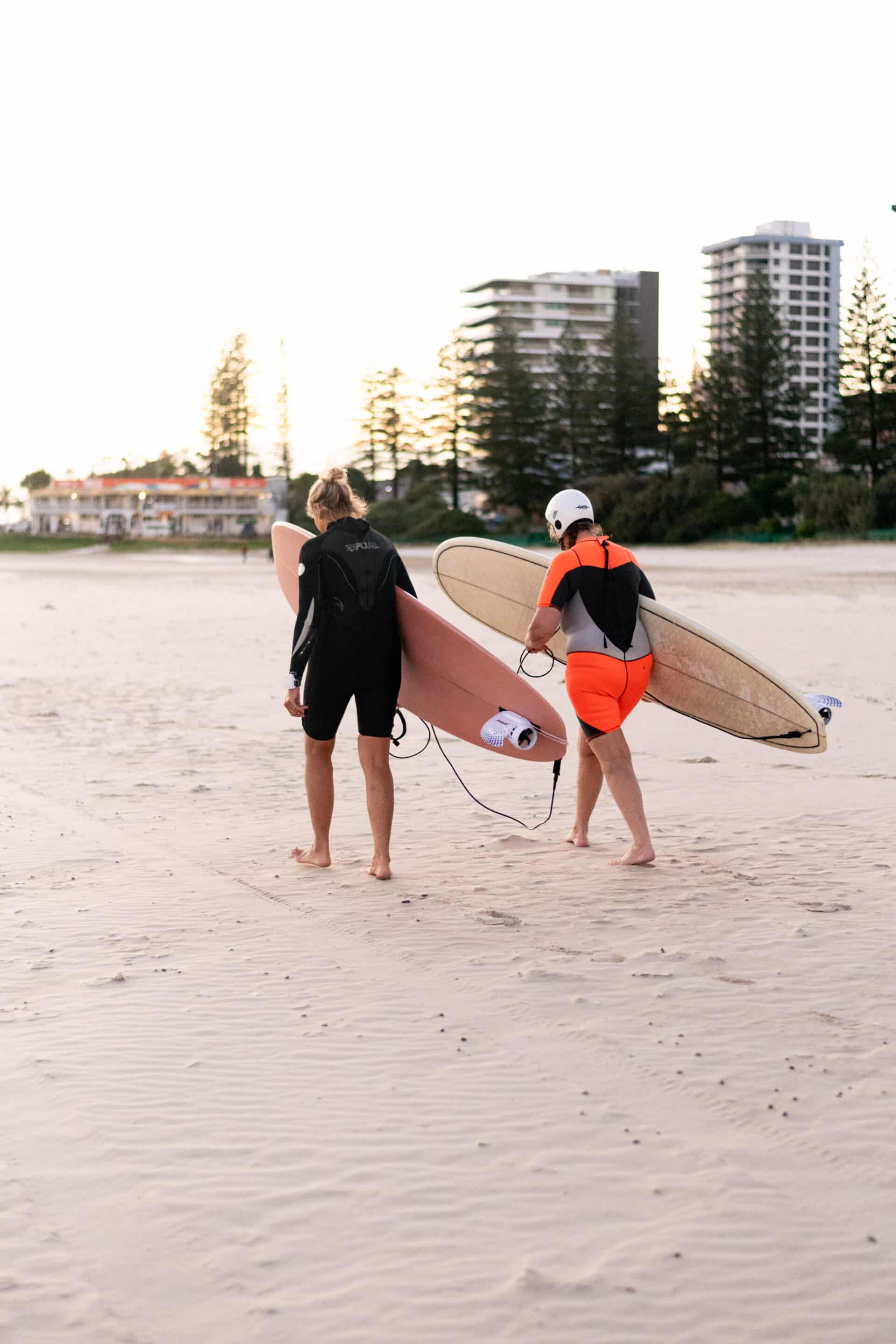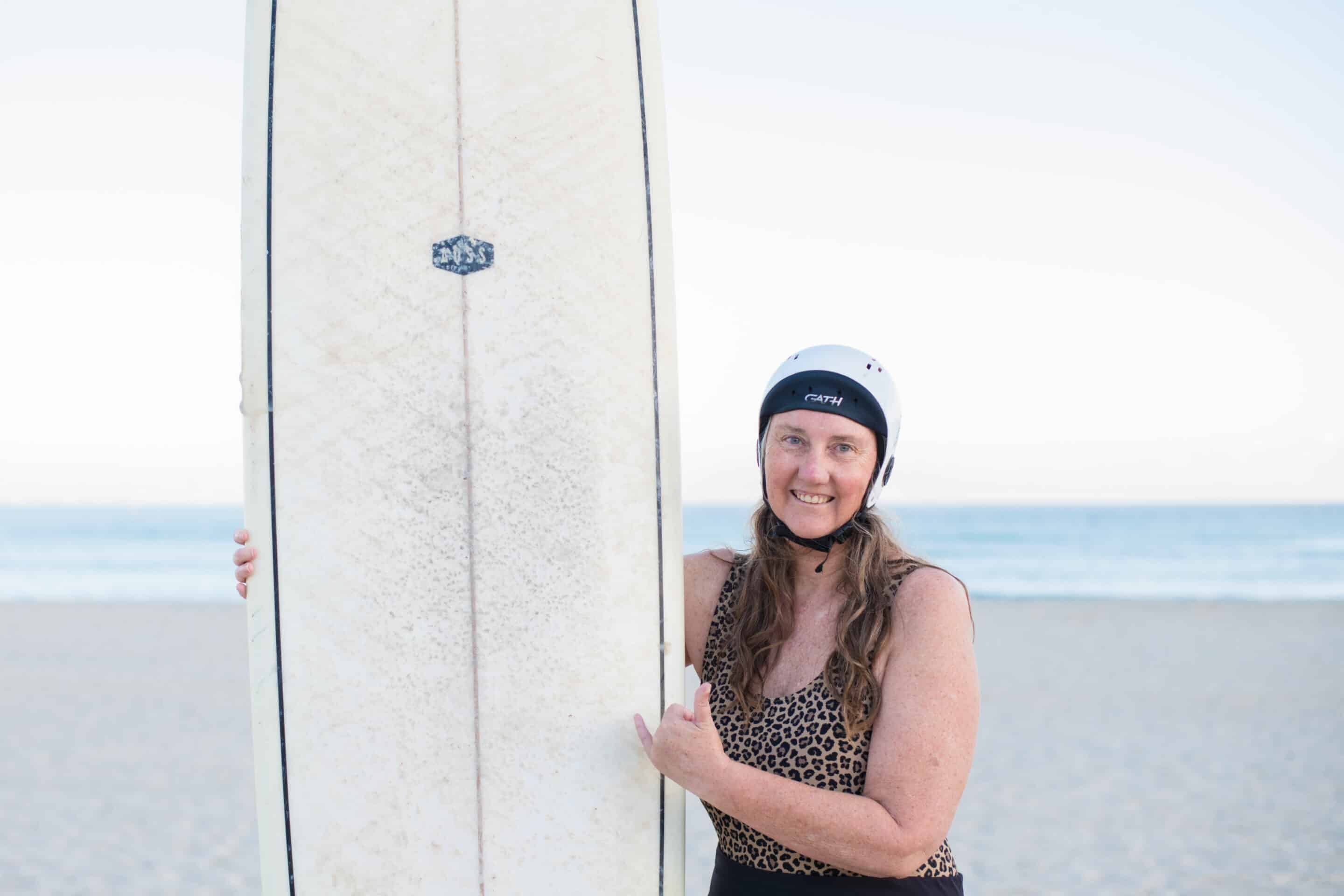
Northern Rivers local Leanne Whitehouse joined more than 120 surfers from 16 countries competing in the first Australian Pro Adaptive Surfing Championship in Byron Bay in late March this year.
The adaptive pro event has nine divisions, including adapted categories for amputation, visual impairment, and neurological impairment affecting limbs.
Among the competitors were surfers from the US, Canada, Brazil, France and Japan.
Leanne has long been an ardent surfer. She dreamed of going professional and competing on the world circuit, but when she was 21 she suffered a traumatic injury in a car accident.
“I was a sleeping passenger,” she explains.
“I didn’t know I was in an accident. I had multiple injuries including a perforated bowel. That was the major injury they wanted to fix.”
Leanne also suffered a traumatic injury to the right side of her brain, paralysing the left side of her body. But she was determined to return to the sea and surf.
Leanne now accesses the NDIS through Social Futures, a not-for-profit and NDIS Partner in the Community.
Through the NDIS, she sees an exercise physiologist who has helped her develop strength to ‘pop up’ or stand on a surfboard, a challenge for Leanne due to her disability.
“Before the NDIS I was catching maybe 30 waves in a whole year. I think in the first year of having NDIS support I caught 2,000 because I had support to go out into the ocean. It has supported me to reach my dreams,” Leanne says.
Leanne is a passionate advocate for surfing as a way of building resilience for people living with brain injury.
Leanne qualified to compete in the Australian Pro Adaptive Surfing Championship as an unclassified invitational adaptive surfer, and she competed in the ‘standup 2 unassisted below knee’ category. While she didn’t make the finals Leanne says she still feels like a pioneer as one of the few contestants with Acquired Brain Injury (ABI).
“To be able to compete in an international surf competition in my own backyard…I feel absolutely honoured, gobsmacked, everything” she says.
The Adaptive Surfing Professionals World Championships began in 2021 and include four events: the Hawaii Adaptive Surfing Championships, the Costa Rica Open Pro of Adaptive Surfing, the U.S. Open Adaptive Surfing Championships in Oceanside California, and for the first time this year, the Australian Pro Adaptive Surfing Championship in Byron Bay.

Leanne surfs adaptively, wearing a helmet and glasses to protect against impacts and to assist with vision and vertigo. Outside of competition she always has a surf support person with her to help her navigate vertigo and special awareness.
“I was approved for NDIS funding on my 30th brain injury anniversary and the difference the NDIS has made to me… it gives me an ordinary life. I can do things like anybody else can do now, with help,” Leanne says.
The NDIS also funds support workers for Leanne.
“Managing my neuro fatigue is a major thing. I can sleep between nine and 18 hours in a 24-hour day, so having someone to support me is huge,” she says.
“For example, the crew at the surf comp went out for dinner and without a support worker to take me, I wouldn’t have been able to go. Because when the lights go out, they go out really quick.”
When she’s not carving waves Leanne dedicates her time to her not-for-profit organisation, Ability ID.
Ability ID provides free identification cards for people with hidden disabilities, including brain injury, stroke, dementia, and autism.
“The ID cards are designed to help when people with disability find themselves in emergency situations or situations when they can’t speak,” she said.
Leanne’s advice for others living with disability is to dream big, and to keep at it.
“Never give up. That is my adage on everything. Never give up. And ask for help. Put your ego in your back pocket and ask for help,” Leanne says.
Photo Credits: Hannah Jessup